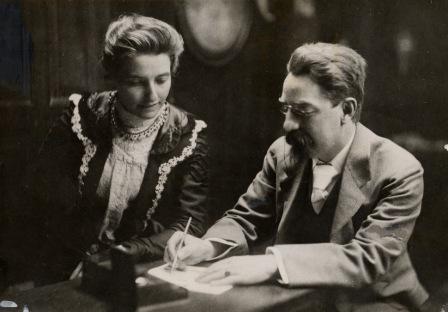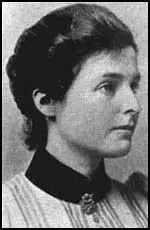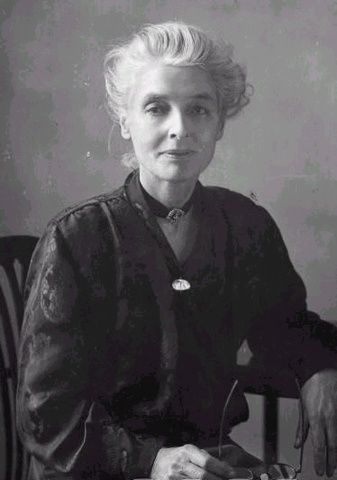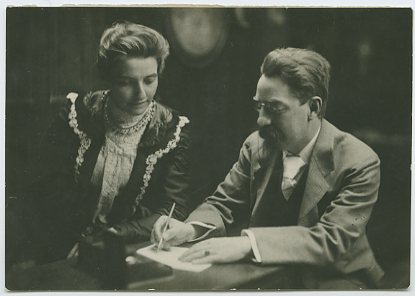Beatrice Webb
Martha Beatrice Webb ( born January 22, 1858 in Standish House, Gloucestershire, † April 30, 1943 in Liphook, Hampshire ), born Potter, was a British socialist and social reformer.
Life
Webb was born the second youngest of nine daughters of industrialist Richard Potter (the only son died just three years old ). Your educated and unprejudiced her father created the opportunities (including tutors ) to acquire a broad humanistic education. After visits to the slums of Soho and the visit of poor relatives in Wales, where the oppressive lot had met in the mills workers in 1883, she decided to become a social researcher. She was an employee of Charles Booth, who created in 1886 to one of the most influential inquiries (Life and Labour of the People of London). In 1892 she married the Fabians Sidney James Webb. The marriage remained childless.
Even as Beatrice Potter, she published the book The Cooperative Movement in Great Britain (1891 ). After her marriage she published mostly with her husband, which is why both are often mentioned in the same breath. After he had been raised in 1929 as Baron Passfield in the peerage, she refused to be called Lady Passfield. Webb was very active in the Fabian Society. She co-founded the London School of Economics and Political Science and the still existing political magazine The New Statesman.
Her nephew, Sir Stafford Cripps, a famous British Labour politician in the 1930s and 1940s was.
Works
- The co -operative movement in Great Britain, London 1891
- (along with Sidney Webb), The History of Trade Unionism (1894 ); dt: The History of British Trade Unionism. Stuttgart 1895
- (along with Sidney Webb) Industrial Democracy ( 1897); German: Theory and Practice of the English Trade Unions, 2 vols Stuttgart 1898
- The Wages of men and women: Should They be equal, London 1919?
- My teaching years. An Autobiography, Frankfurt am Main 1988: Insel Verlag. ISBN 3-458-14625-3










